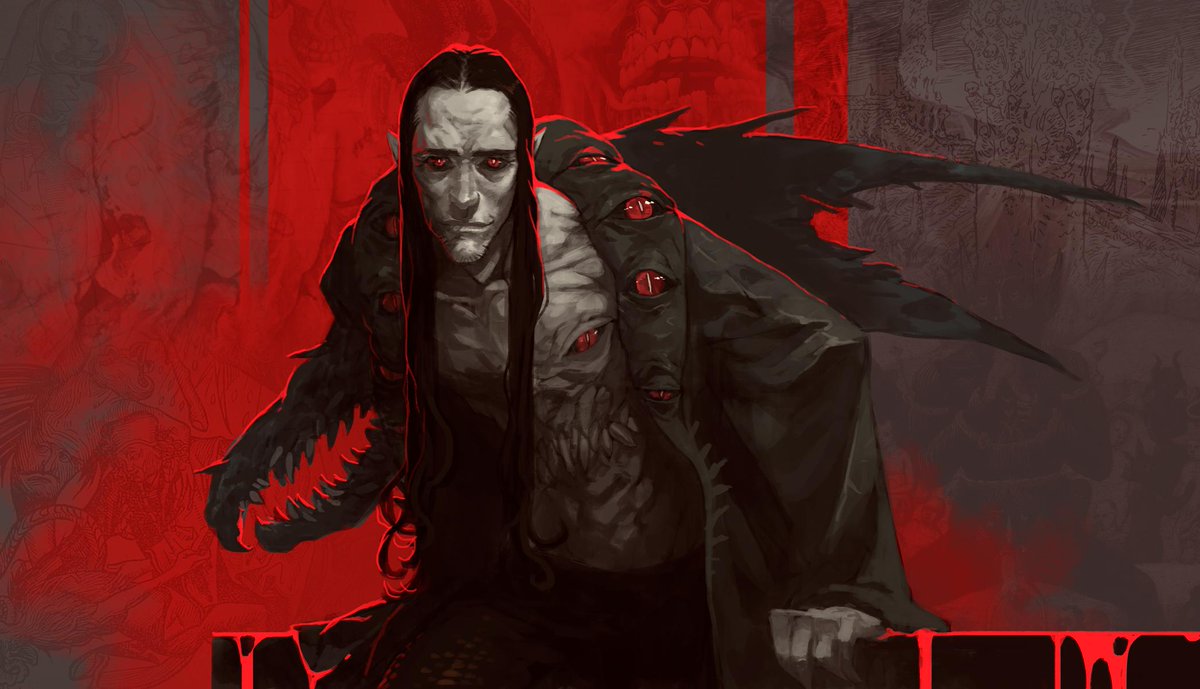Tzimisce
To have been Embraced a Tzimisce means to own for the sake of owning, and to keep it out of the hands of others at all costs. In fact, many Tzimisce regard the Embrace itself as an act of ownership, and have decidedly traditional relationships with their childer, whom they may even regard as property in extreme cases. If pushed to the edge they’d rather burn with their charge than let it fall into the hands of others; as dragons, they are utterly familiar with the meaning of “scorched earth.” Even tonight, they are the iron fist, with the velvet glove entirely optional. In a few cases their subjects are willing, but in most cases these subjects live in fear of an aloof master caring not about the happiness of its prize — only that it stays theirs. Visiting members of other clans are occasionally shocked to see Tzimisce domains that are run-down, neglected, or barren, until they remember that the Dragons don’t necessarily care whether their charges flourish, only that they are wholly owned. A decrepit tenement is just as likely to be a Tzimisce holding as an opulent estate on ancestral lands.
This relentless possessiveness extends as well to the physical form — and beyond — of the Tzimisce, who consider themselves the ultimate owners of their bodies, even beyond the limitations of the Curse of Caine itself. Many Dragons practice a specialization of the Protean Discipline known as Vicissitude that allows them to rework their bodies and those of subjects and even less willing victims.
Indeed, those savvy to the lore of the clan recall the early nights of Vicissitude, when the Tzimisce refused to heed Protean limitations of wolf- and bat-forms, and pushed their mastery even further.
Even beyond the practice of physical Vicissitude, the Dragons are eager to extend that mastery into the realm of the mind and spirit. These Tzimisce practice a form of transcendentalism that concerns itself with the very limits of vampirism itself. They transform themselves into statues or ikons, or alter the traits of gender (such vestigial mortal trappings...), or cultivate retinues of lookalikes to subsume their own individuality. To hear the hoariest tales, some Voivode lords have themselves become one with their havens, or even suffused themselves into their homelands, merging their consciousness with the very soil of the domain. What better way to show ownership of the land and its folk than to become that very land and sustain the generations to come?
As might be expected, this makes for harsh divides between young Tzimisce, who often have little that would be considered property in the traditional sense, and older Dragons, who have had time to claim and redouble their precious holdings, and this has been true since time out of mind. No surprise, then, to learn that the Tzimisce participated vigorously in the Anarch Revolt, and were one of the founding clans of the Sabbat, rebelling against the tyranny of elders. Even tonight this wariness exists,
and Dragons are exceptionally cunning when it comes to defining the charges over which they claim ownership, lest a more-covetous voivode seize the charge for their own.
Few carry a grudge or hate an elder like a Tzimisce, and the clan has numerous members in both the Sabbat and the Anarchs. Among the Black Hand, a nigh-medieval mindset drives the grasping Dragons to destroy the pawns of the despised ancients. Similarly, being shut out of the most desirable domains often drives young Tzimisce into the modern ways of the Anarchs, as they redefine themselves and their charges to claim holdings relevant to the night. Some few Tzimisce, generally arch-traditionalists, find a familiar (some would say anachronistic or even stagnant...) comfort in the neofeudalism of the Camarilla, but these are comparatively rare, and most Camarilla courts have little love for their avarice. Few Tzimisce see sect as much more than a means to a personal end, and the Camarilla gives them little trust in return. At their worst, the Tzimisce are tyrants, without the sense of obligation or duty that nobility usually conveys.



